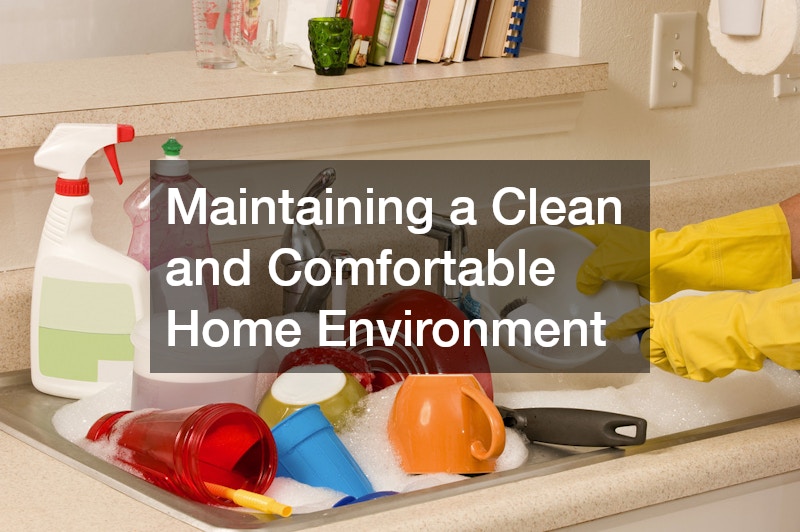Parenting in today’s world is both a rewarding and challenging journey, filled with moments of joy, worry, and constant learning. Every parent wants to provide the best for their children, balancing love, discipline, education, and care while navigating a fast-paced and often complex environment. The responsibilities of parents extend far beyond the basics of feeding and sheltering; they involve fostering emotional well-being, nurturing intellectual growth, and maintaining physical health for every family member. With the wealth of information and resources available today, it can sometimes feel overwhelming to know where to start or how to prioritize these many demands.
Modern families encounter unique pressures, from juggling work and family time to staying informed about education options and healthcare needs. Many parents seek out communities and support systems that offer encouragement and practical advice, understanding that raising children requires more than just individual effort. Moreover, the scope of care often includes extended family members and even pets, each adding layers to the responsibilities of parents.
In addition to emotional support, access to quality services plays a crucial role. Finding trustworthy early learning centers, reliable medical professionals, and dependable service providers requires time and attention, which can stretch parents thin. At the same time, ensuring children engage in healthy, age-appropriate activities supports their development, building foundations that will carry them through life.
Balancing all these tasks involves careful planning and flexibility. Parents today are continually adapting to changing circumstances, whether it’s addressing a sudden medical emergency or keeping up with routine appointments. The duties of parenting also include maintaining a safe, comfortable home environment and ensuring that the family vehicle is in good working order to manage daily logistics smoothly.
This article explores essential areas parents should consider to successfully meet their wide-ranging parental obligations. From building community ties to managing healthcare and practical household matters, these topics offer guidance to support parents in navigating their complex roles with confidence and care.
Finding Community Support for Growing Families

Building a supportive community is one of the foundational pillars for families raising children today. Connecting with others who share similar experiences can ease the daily pressures and provide valuable advice and encouragement. Many families find that local religious groups or organizations offer a welcoming space tailored specifically for young families. These environments provide not only spiritual nourishment but also opportunities for parents and children to interact with peers and mentors.
Engaging in community activities through churches or family groups fosters a sense of belonging and mutual support. It can be a place to share parenting tips, exchange childcare responsibilities occasionally, and organize social events that enrich family life. This social network often proves invaluable during challenging times, such as when balancing work demands or coping with unexpected family health issues.
Parents who actively seek out and participate in such groups often report feeling less isolated and more empowered. They gain access to a network that understands their unique responsibilities as parents, offering emotional support and practical help alike. Community involvement also benefits children, providing early opportunities for socialization in a safe and nurturing environment.
Engaging Your Little Ones With Age-Appropriate Play
Play is a vital component of a child’s growth and development, especially during infancy. Selecting the right kinds of activities for infants supports cognitive, motor, and emotional skills, laying the groundwork for future learning. Toys and games designed for specific age groups encourage curiosity and exploration, which are essential at this stage.
Parents should focus on interactive play that involves gentle stimulation through sound, touch, and visual contrast. Activities such as reading aloud, singing songs, or playing with soft, textured toys help babies develop sensory awareness. Simple games that promote movement, like tummy time or reaching for objects, also support muscle development and coordination.
Beyond developmental benefits, play is an opportunity for parents to bond deeply with their children. These moments create trust and security, fundamental to a child’s emotional well-being. Regularly engaging infants in such activities reflects an important aspect of the responsibilities of parents—being present and responsive to their needs.
Choosing the Best Place for Early Learning and Care
Selecting an early childhood center is a significant decision that can shape a child’s first formal experiences with education and socialization. Parents must consider many factors, including the center’s philosophy, staff qualifications, safety protocols, and the quality of the learning environment.
A high-quality early childhood center offers a balanced curriculum that promotes not only academic readiness but also social and emotional development. Small group sizes, attentive caregivers, and a stimulating environment all contribute to positive outcomes for young children. Visiting multiple centers, asking detailed questions, and seeking feedback from other parents are crucial steps in making an informed choice.
The decision aligns closely with the responsibilities of parents by ensuring children have a supportive setting that encourages their curiosity and independence while providing a safe space for growth. Investing time and effort in this choice pays dividends throughout the child’s educational journey.
Navigating Educational Options in Your Neighborhood

Once children reach school age, parents face the task of choosing the best local schools to meet their children’s academic and social needs. Researching and understanding the options available helps families make decisions that reflect their values and expectations.
Local schools vary widely in their offerings, teaching approaches, extracurricular activities, and community involvement. Some parents prioritize schools with strong academic reputations, while others focus on specialized programs or inclusive environments. Visiting schools, attending open houses, and connecting with current families provide valuable insights.
Understanding the school district’s policies and resources is also essential. Parents who stay informed can advocate effectively for their children and collaborate with educators to support academic success. This engagement exemplifies the responsibilities of parents in actively shaping their children’s educational experiences.
Prioritizing Health With Regular Checkups
Maintaining children’s health requires regular dental appointments and medical checkups, which help prevent and identify issues early. Scheduling routine visits with trusted professionals ensures children receive appropriate care and guidance for healthy development. These checkups provide an opportunity to monitor growth milestones, screen for common illnesses, and address any concerns before they escalate. By establishing consistent healthcare routines, parents build a foundation of trust and comfort for their children regarding medical visits, reducing anxiety and fostering lifelong healthy habits.
A dental appointment is an important part of this preventative approach. Early dental visits introduce children to oral hygiene habits, helping them avoid cavities and other issues. Parents should choose dentists experienced with children’s needs to foster a positive, stress-free experience. Many pediatric dentists incorporate fun, educational methods that encourage children to maintain good dental habits daily. This early exposure not only protects teeth but also builds confidence and reduces fear of future dental procedures, contributing significantly to overall health.
These regular appointments also allow parents to discuss nutrition, development, and behavioral concerns with healthcare providers. Staying current with vaccinations and screenings is an additional critical responsibility, reinforcing the many layers of the responsibilities of parents in safeguarding health. Parents can receive personalized advice on diet, exercise, and sleep patterns, which are all crucial to a child’s well-being. Regular dialogue with professionals empowers parents to make informed decisions and address issues promptly, ensuring their child thrives physically and mentally.
Knowing Where to Turn in a Dental Emergency
Even with the best preventative care, dental emergencies can happen, causing pain and distress for children and families. Knowing where to find an emergency dentist promptly can make a significant difference in treatment outcomes. Quick intervention can often save a tooth or prevent complications, reducing recovery time and discomfort.
Parents should research emergency dental services in advance to avoid panic during a crisis. These specialists provide urgent care for issues such as knocked-out teeth, severe pain, or injuries sustained during play or accidents. Having contact information readily available and understanding the procedure for emergency visits equips parents to act swiftly. Additionally, preparing a basic dental emergency kit at home with relevant supplies and instructions can provide immediate relief while arranging professional care.
This preparedness is a vital part of the responsibilities of parents, ensuring that their child’s well-being is protected during unexpected events. Knowing where to turn and how to act calmly during a dental emergency helps minimize stress for the entire family and ensures that children receive timely and appropriate treatment when it matters most.
Staying on Top of Routine Medical Visits

In addition to dental care, regular doctor appointments keep children’s overall health on track. These visits allow healthcare providers to monitor growth, administer vaccines, and address any emerging health concerns. Preventive care visits also offer parents the chance to discuss developmental milestones and behavioral issues in a supportive environment.
Parents must manage schedules effectively, balancing busy family life with timely visits. Keeping a medical calendar or using reminder tools can help prevent missed appointments. Open communication with the doctor builds a partnership focused on the child’s best interests. Many healthcare providers now offer digital health portals, making it easier for parents to track immunizations, request advice, and schedule visits online.
Managing these routine visits is another example of the responsibilities of parents, staying proactive and organized to meet their child’s ongoing health needs. This ongoing commitment promotes healthier outcomes and reassures parents that they are actively supporting their child’s growth and well-being.
Caring for Your Pets’ Health Needs
For families with pets, caring for their health is an additional responsibility that often overlaps with caring for children. Regular visits to a veterinarian ensure that pets receive vaccinations, checkups, and prompt treatment when needed. Preventative care for pets, such as flea and tick prevention and dental care, helps avoid serious illnesses.
Pets contribute to family well-being but require time, attention, and financial investment. Choosing a reliable veterinarian and establishing a care routine helps maintain pet health and happiness. Beyond medical care, ensuring pets receive proper nutrition, exercise, and social interaction supports their emotional well-being and strengthens the family bond.
Including pet care within the broader scope of the responsibilities of parents reflects a holistic approach to nurturing a safe and loving home. Attentive pet care demonstrates compassion and responsibility, teaching children valuable lessons about empathy and commitment.
Keeping Your Vehicle Running Smoothly
Managing a family vehicle is an often-overlooked but crucial task for parents. Reliable transportation is essential for getting children to school, appointments, and activities on time and safely. Unexpected breakdowns can disrupt schedules and cause unnecessary stress for busy families.
Regular maintenance and timely auto repair services prevent breakdowns and costly emergencies. Parents should establish relationships with trustworthy mechanics and keep track of service schedules. This includes regular oil changes, tire rotations, brake inspections, and fluid checks, all of which contribute to vehicle reliability.
This practical aspect of the responsibilities of parents supports the smooth functioning of daily family life and ensures that logistics do not become an obstacle. By proactively managing vehicle care, parents reduce risks on the road and safeguard their family’s well-being during everyday travel.
Maintaining a Clean and Comfortable Home Environment

A clean, organized home contributes to physical health and emotional comfort for the entire family. Hiring a cleaning company or setting a family cleaning routine helps keep the household safe and pleasant.
Reducing clutter, managing allergens, and maintaining hygiene all support children’s well-being. A well-maintained home also teaches children valuable lessons about responsibility and care.
This aspect highlights the diverse nature of parental duties, extending beyond direct childcare to creating a nurturing environment for growth.
The obligations of parenthood today are multifaceted and ever-changing, requiring a careful balance of emotional, physical, and practical care. From seeking community support and engaging children in meaningful play to managing healthcare and household needs, parents navigate a wide range of roles daily. The task of finding the right resources—whether a local church for young families, an early childhood center, or trusted healthcare providers—reflects the depth of commitment involved.
Prioritizing regular medical and dental appointments, being prepared for emergencies, and maintaining pet and vehicle health are essential components that contribute to family stability. Each element demands attention and foresight, underscoring the proactive nature of parental responsibilities. Moreover, sustaining a clean, safe home environment not only supports physical health but also fosters a sense of security and belonging.
Embracing these duties fully means accepting that parenting is a dynamic, evolving journey. Challenges will arise, but so will moments of immense satisfaction and growth. Parents who build strong community ties, engage thoughtfully with educational choices, and maintain diligent care routines set a foundation for their children’s success and well-being.
Ultimately, the responsibilities of parents reflect an ongoing dedication to nurturing the whole family, adapting to needs as they change, and finding strength in the many roles they fulfill. With careful planning, support, and love, parents can confidently face the demands of modern family life, ensuring that each child thrives in a safe, caring, and enriching environment. This comprehensive approach to parenting honors the full scope of what it means to care deeply and wisely for the next generation.

